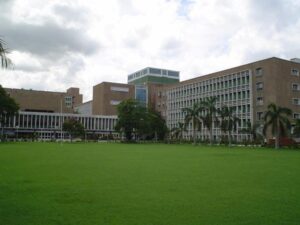
The Delhi Medical Association (DMA) has offered praise for the controversial National Medical Commission (NMC) Bill, in a marked departure from the criticism it has faced from much of India’s medical fraternity.
“We are of the opinion that the NMC Act is good for society,” stated president of the DMA Dr Girish Tyagi. “It will end corruption and will bring reforms in medical education. That’s why we met Harsh Vardhan and sorted out some issues. The minister gave clarification.”
Dr Vardhan, the Union Health Minister, had earlier met with doctors on strike at the All India Institute of Medical Sciences (AIIMS) and Safdarjung Hospital in Delhi and offered clarifications on the Bill which convinced the doctors to call off their stir. In recent days, Vardhan has been keen to issue clarifications on numerous points of contention concerning the Bill and has discussed amendments made to reflect doctors’ concerns.
“Some were touchy about a certain provision, some others were touchy about another,” he said. “So, we decided to take everybody along and take them on board.” Amendments to the Bill have sought to make it more representative of states in order to allay the concerns of regional parties, including expanding the NMC to a 22-member body instead of the previous fourteen. This had been an earlier demand of the DMA.
Vardhan has also said that individuals without the requisite medical qualifications acting as community health providers is only a temporary measure to plug the shortage of medical professionals in the country. This provision of the Bill, too, was a concern of the DMA. “The provision of giving licenses to persons related to the field of modern medicines and allowing them to practice as community health workers under certain circumstances and places will lead to the creation of a new force of quacks which will be difficult to control,” they had earlier stated.
President Ram Nath Kovind signed the NMC Bill into law last week, following its passage by Lok Sabha and Rajya Sabha MPs. Prime Minister Narendra Modi has praised the Bill, describing it as a much-needed reform of the Medical Council of India (MCI) which has been dogged by allegations of corruption.
“When we formed the government in 2014, there were many concerns about the existing system of medical education,” he said. “A parliamentary committee did rigorous study and took a very dull view of the state of affairs in medical education. It pointed out mismanagement, lack of transparency and arbitrariness…We decided to go through with it [reforms] because this is not a matter that can be taken lightly, as it concerns the health of our people and [the] future of our youth.”
Of the NMC Bill itself, the Prime Minister expressed optimism that it will bring meaningful reforms. “It will ensure transparency, accountability and quality in the governance of medical education in the country,” he stated. It aims to lessen the burden on students, increase the number of medical seats and reduce the cost of medical education. This means more talented youth can take up medicine as a profession and this will help us increase the number of medical professionals.”

